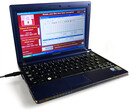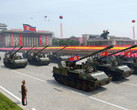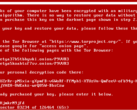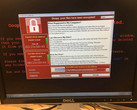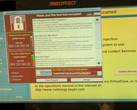The Seattle Times has published an internal memo from Boeing in regard to a cyber-attack involving the notorious WannaCry ransomware. According to The Seattle Times, the chief engineer at Boeing Commercial Airplane production engineering, Mike VanderWel, issued a rather troubling message in regard to the suspected attack:
It is metastasizing rapidly out of North Charleston and I just heard 777 (automated spar assembly tools) may have gone down.
Naturally, the last thing the world’s largest aerospace company wants is potential customers being concerned about whether or not Boeing’s products are infected with malware, especially one as alarming as WannaCry. In response to the numerous reports of the cyber-attack, Boeing issued this statement on Twitter:
A number of articles on a malware disruption are overstated and inaccurate. Our cybersecurity operations center detected a limited intrusion of malware that affected a small number of systems. Remediations were applied and this is not a production or delivery issue.
It is widely believed that North Korea was behind the 2017 WannaCry attack.



